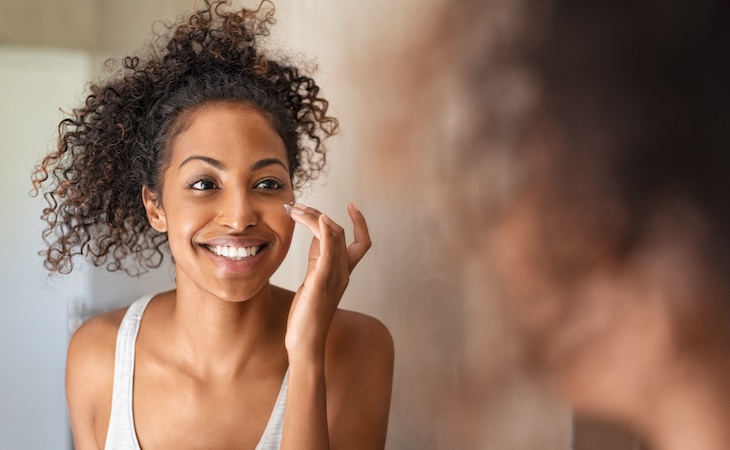If you’ve ever had trouble sleeping, chances are someone’s suggested that you take melatonin. The over-the-counter supplement, also known as “the sleep hormone,” can be found in gummies and supplements you take before slipping between the sheets and (hopefully) catching your restful Z’s.
It was probably only a matter of time before melatonin started popping up in skincare products—and, according to a 2019 study in the International Journal of Molecular Sciences, using it topically can help defend against external stressors and make skin look better.
So, you may be wondering: Do melatonin skincare products really work?
We spoke with Hadley King, MD, a board-certified dermatologist in New York City, to find out if you should consider skincare with melatonin before drifting off to dreamland each night.
What is melatonin?
In its simplest terms, melatonin is an over-the-counter sleep aid, and it’s also a hormone produced by the brain.
“It plays a role in sleep and circadian rhythm,” says King. “It’s produced in response to darkness, and being exposed to light at night can decrease its production.”
According to a 2019 study in the International Journal of Molecular Sciences, using melatonin topically can help defend against external stressors and make skin look better.
How does melatonin work as a skincare ingredient?
While you might be familiar with melatonin as a supplement, the fact that there are melatonin skincare products may be brand-new information.
Melatonin works topically, in products like serums, moisturizers, and masks, which you can apply before bed. It also works with other common anti-aging ingredients like retinol and vitamin C.
Additionally, using melatonin in skincare products actually gives your skin the skincare benefits, while ingesting it orally does not.
Benefits of melatonin in your skincare routine
According to a study published in Dermato-endocrinology, melatonin can help protect against the free radicals and UV rays that lead to signs of skin aging like wrinkles and fine lines.
“Melatonin has antioxidant properties, which means it can help neutralize free radicals and reduce free-radical-induced damage from UV rays and pollution that harms DNA in the skin cells and collagen in the skin,” explains King.
Here are some of the ways you can benefit from using melatonin in skincare.
- It can protect against harmful UV rays that cause the appearance of fine lines and wrinkles.
- It can upregulate important antioxidative enzymes, which King notes “activate further protection against oxidative damage.”
- It can help protect against melasma, a skin condition that causes discolored patches.
- It can block free radicals, molecules in the environment that damage the skin.
“Melatonin has antioxidant properties, which means it can help neutralize free radicals and reduce free-radical-induced damage from UV rays and pollution that harms DNA in the skin cells and collagen in the skin.”
– Hadley King, MD, a board-certified dermatologist in New York City
Types of melatonin skincare products
If you’re looking to incorporate melatonin skincare products into your evening routine, you’ve got options. Melatonin can be found in a variety of skincare products, including serums, face masks, and moisturizers.
How to incorporate melatonin into your skincare routine
Are you ready to incorporate melatonin skincare products into your skincare regimen? Here are a few tips and tricks.
- Use melatonin skincare in your evening beauty routine. “It’s recommended to be used at night when the body’s melatonin levels are highest, which will theoretically make the product work most effectively,” says King.
- Pair with other anti-aging products. “I recommend using topical retinoids at bedtime, and these can be paired with topical melatonin,” suggests King. You can also use products with vitamin C or hyaluronic acid along with melatonin.
- Wait a little while to see results. Give it one to three months before you can expect to see any benefits, says King.
- Don’t be too concerned about side effects. Luckily, applying topical melatonin doesn’t come along with headaches, dizziness, or nausea, like you may experience with oral melatonin.
Best melatonin skincare products
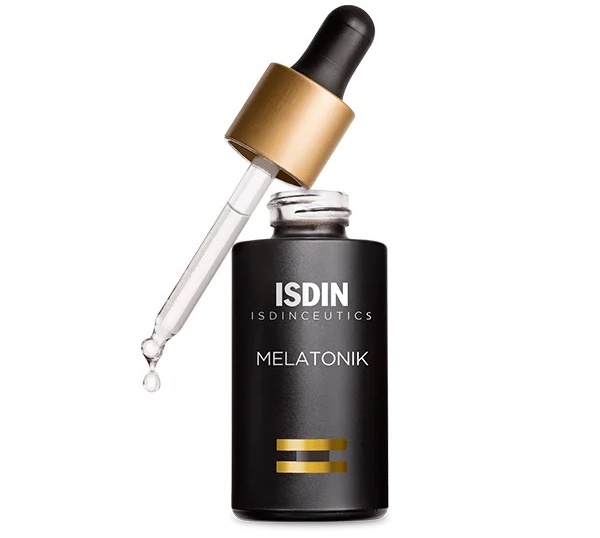
Isdinceutics Melatonik Overnight Recovery Serum
With a combination of melatonin, bakuchiol, and vitamin C, this serum-in-oil formula helps your skin recover from daily stressors. “It stimulates antioxidant defenses and helps to restore collagen and elasticity for youthful-appearing skin,” says King.
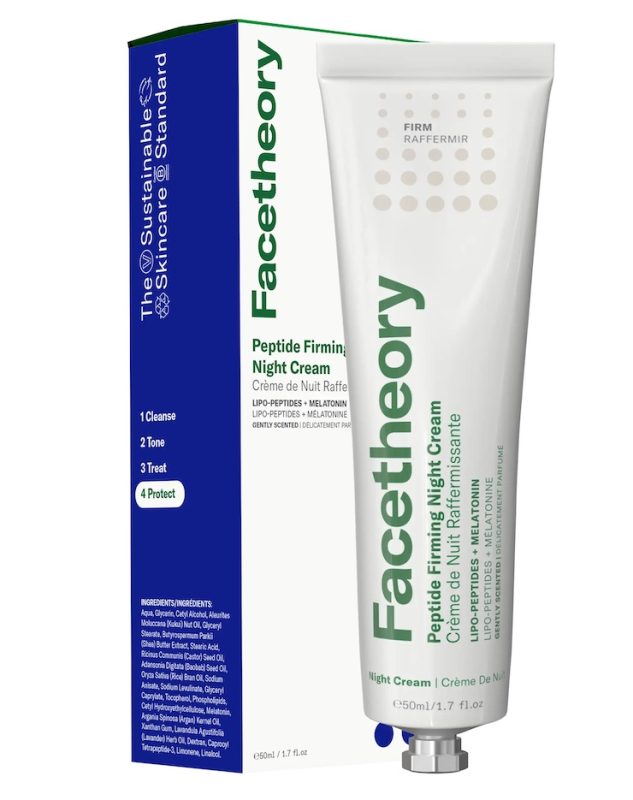
Facetheory Peptide Firming Night Cream
A combination of nourishing peptides and calming melatonin work to firm and repair skin while you sleep. Plus, you can choose from lavender or unscented formulas.
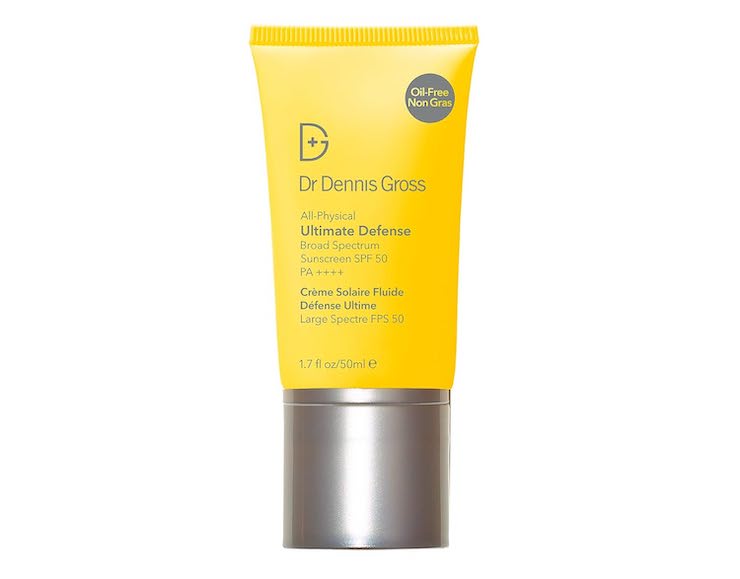
Dr. Dennis Gross Skincare All-Physical Ultimate Defense Broad Spectrum Sunscreen SPF 50
Did you know you can use melatonin in your daytime skincare routine too? Incorporating it into a sunscreen (which, yes, you should be wearing every single day), helps you fight against harmful UV rays. This one contains melatonin, vitamin C, and vitamin E to reduce the appearance of dark spots, uneven skin tone, and signs of aging around the face.
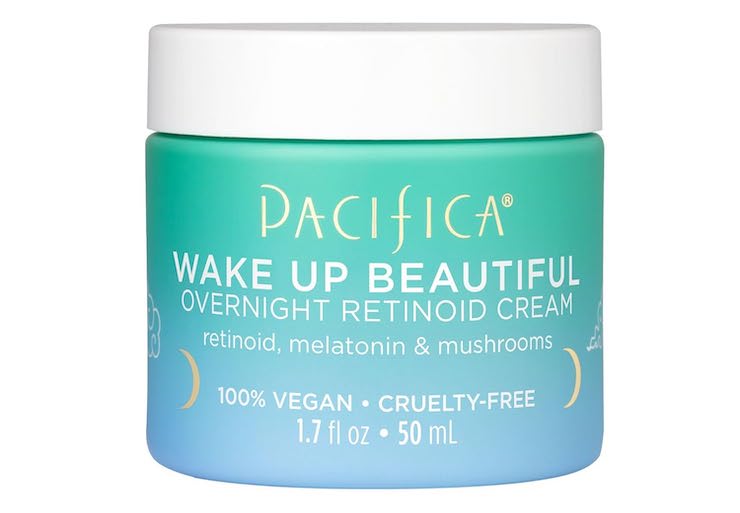
Pacifica Wake Up Beautiful Overnight Retinoid Cream
Super-light, super-hydrating, super-nourishing. This night cream is all three, thanks to a combination of melatonin, mushrooms, and a retinoid.
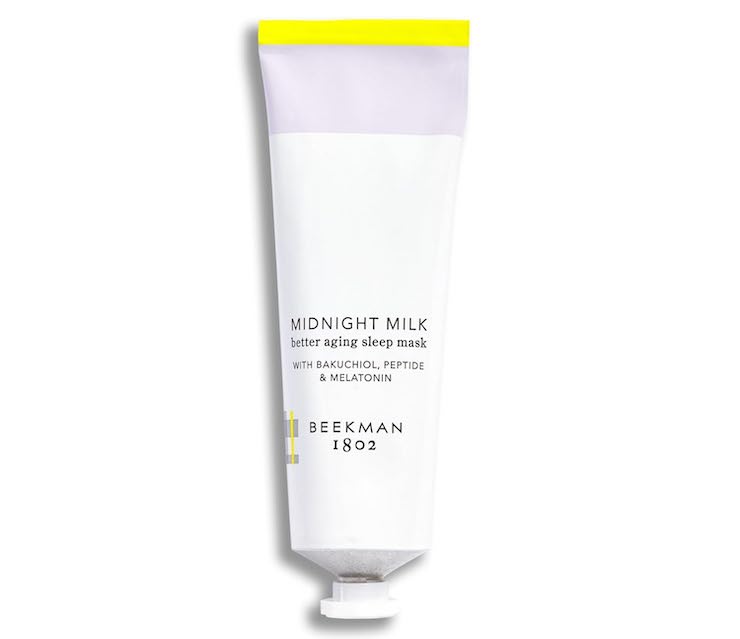
Beekman 1802 Midnight Milk Better Aging Sleep Mask
Slather on this mask before bed and wake up to plumped, youthful-looking skin. Melatonin combines with bakuchiol (an alternative to retinol) and peptides for the ultimate in elasticity and nourishment.
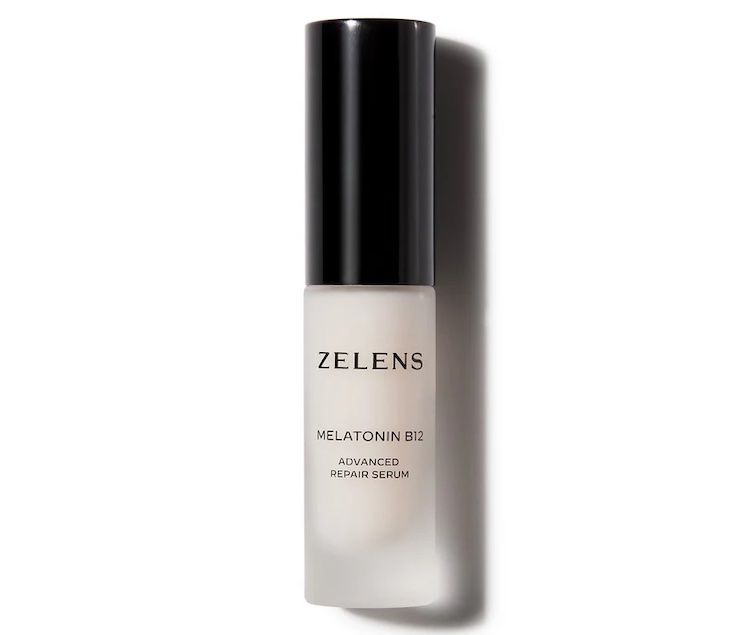
Zelens Melatonin B12 Advanced Repair Serum
Melatonin and vitamin B12 work together to help maximize skin repair in a silky, moisturizing formula.
FAQs
What does melatonin do in skincare?
There are a few significant benefits of skincare with melatonin. Melatonin skincare products can help protect against harmful UV rays and free radicals, which can lead to aging. Melatonin skincare products can help prevent fine lines, dark spots, and wrinkles. It can also help protect against melasma.
Can melatonin be absorbed through the skin?
Melatonin can penetrate the skin. You can do this with a variety of melatonin skincare products, including serums, moisturizers, and face masks.
Can melatonin be used topically?
Yes, you can absolutely use melatonin topically with multiple skincare products. The benefits are different than when melatonin is used orally—you won’t get benefits for a better night’s sleep, but it will help protect your skin against outside stressors that lead to aging.
Next, learn how to get your beauty sleep so you can wake up looking refreshed.

